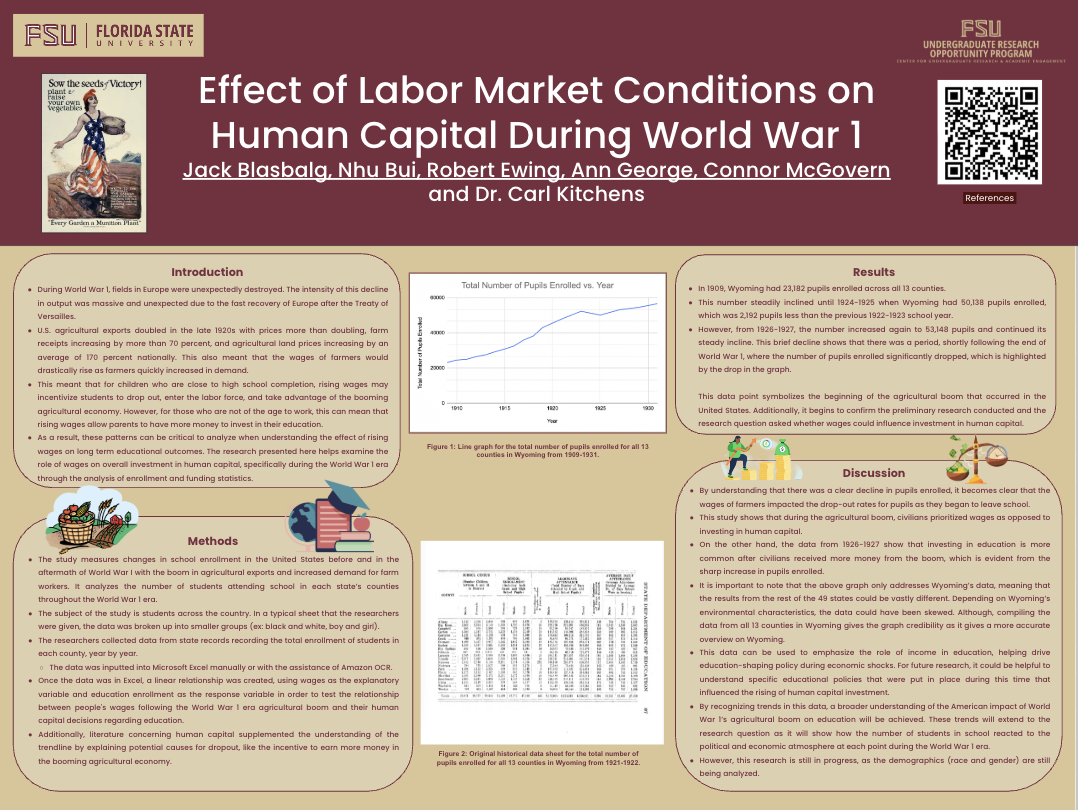Research Symposium
25th annual Undergraduate Research Symposium, April 1, 2025
Ann George Poster Session 2: 10:45 am - 11:45 am/ Poster #30
BIO
My name is Ann George, and I am a first-year economics major from Exeter, New Hampshire. Currently, I am pursuing a pre-medicine curriculum with future aspirations to attend med school. My present interests revolve around finding cost-efficient ways to improve accessibility in healthcare. This research project has given me insight into the various aspects of how the market system can affect the accessibility of education. It has helped me build the skills to analyze and interpret pieces of literature related to economics. Outside of academics, I love to hang out with my friends and explore the Tallahassee area. In the future, I hope to do more work at the intersection of medicine and economics, helping improve the accessibility of the healthcare system for everyone.
Effect of Labor Market Conditions on Human Capital During World War 1
Authors: Ann George, Dr. Carl KitchensStudent Major: Economics
Mentor: Dr. Carl Kitchens
Mentor's Department: Economics Mentor's College: College of Social Sciences and Public Policy Co-Presenters: Jack Blasbalg, Nhu Bui, Robert Ewing, Connor McGovern
Abstract
This investigation explores how labor market conditions during World War 1 influenced long-term educational outcomes. The relationship between rising wages and human capital investment was examined across a variety of youth age groups. This research was conducted by transcribing data from historical publications into Microsoft Excel, either manually or with the assistance of OCR, analyzing this retrospective data, and supplementing this understanding through further review of human capital literature. Additionally, data analysis was conducted through a linear regression test to assess the relationship between wages and human capital decisions. Preliminary results indicate that World War 1’s agricultural boom led to distinct effects on various age groups of students. For older children, meaning those nearing high school completion, this boom incentivized entry into the labor force due to immediate earnings. However, for younger children just beginning school, higher wages facilitated a rise in educational investment due to increased income within parents. The preliminary results of this study suggest that older students prioritized immediate earnings over investment, whereas educational investment was more attainable with younger children due to household income increases. This research can provide insights as to how the labor market can influence educational and societal issues on a level that is relevant today. By emphasizing the role of income in education, this can influence how policy develops to encourage the rise of human capital investment.
Keywords: economics, education, human capital, wages

